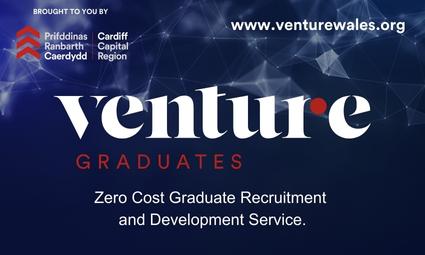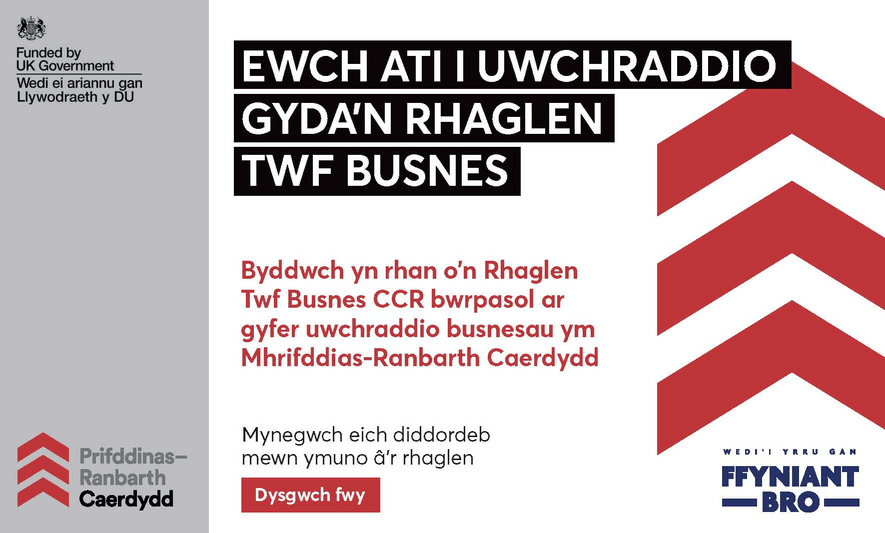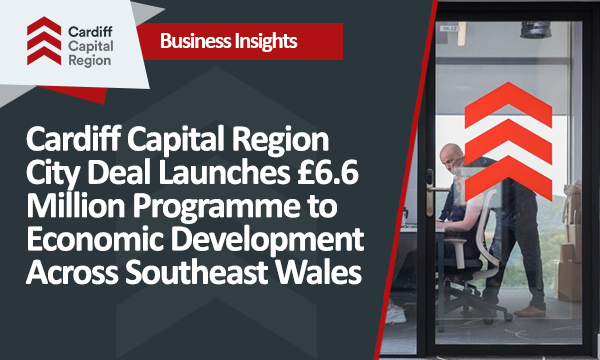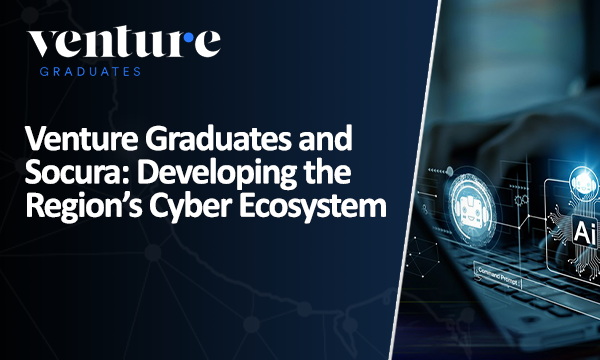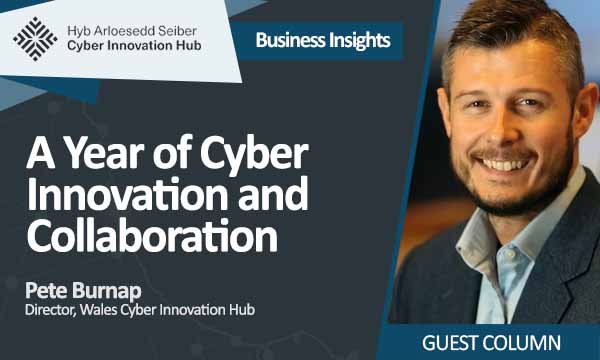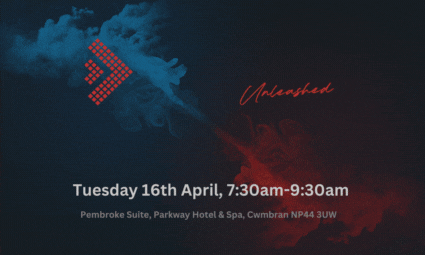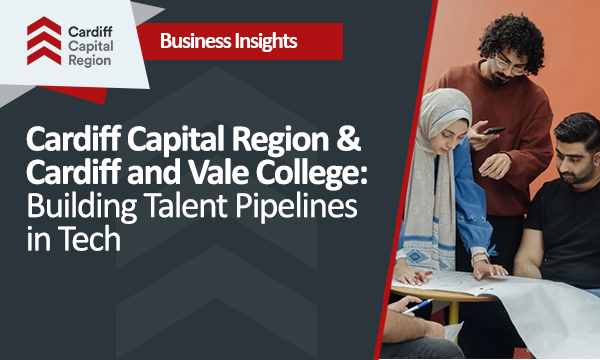How strong is our skills base here in the Cardiff Capital Region? What does the future of talent look like in Southeast Wales? How can we become the best that we can be? The Venture ‘Talent Leaders Talking’ series gets to the very heart of where we stand in terms of the skillsets, employability, opportunities and potential we have in our region – discovering the many dimensions of ‘Where Are We?’ and ‘What’s Next?’ as we move into the fourth industrial age.
Guy Lacey, Principal/CEO of Coleg Gwent, is at the centre of the enormous evolution taking place in education across our region – and in this wide-ranging conversation, Guy shares his thoughts and insights on how employers, learners, educational institutions and training providers are coming together to drive the vision of sustainable talent pipelines and an inclusive economic prosperity…
“The first thing to remember is where we have come from over the past few years. There’s been a gradual recognition that as a region we are ‘under-qualified’ when compared to the rest of the UK. We’ve understood the need to develop the higher skills that used to be called HNC and HND, we’ve embraced the varying levels of apprenticeships that hold huge opportunities for both our employers and our potential employees; and we have welcomed the fact that post-compulsory education is far more about the world of work and life-long learning than it ever was.
“There’s also been a dawning realisation that as a society, Southeast Wales still has many inequalities. Here in Gwent, for example, we have communities like Abergavenny and Brynmawr sitting virtually side-by-side but differing wildly in terms of educational outcomes, health outcomes, employment outcomes and life outcomes. Education is one way to bridge these inequalities. It’s one of the greatest levellers we have – a pathway to giving people the skills and confidence they need for a life where they can enjoy well paid and stable employment.
“Beyond all that, we know that society is changing – and rapidly so. The worker of tomorrow will have many jobs through their lifetime and that brings great opportunity as well as some challenges. Technology has been the main driver in all of this, of course. Tech is embedded in the world of work across an incredibly wide spectrum of roles. Whether you’re a care worker, construction worker or software engineer, you need digital skills to do your job. We can’t underestimate the pace and impact of this technologically-driven transformation, so it’s fair to say that ‘Education’ – and the people who work in it – are changing, and need to keep changing, too.
Partnership working delivering to everyone in all communities
“In many ways, the birth of Cardiff Capital Region has helped us address this revolution that’s happened and continues to happen all around us. Bringing together ten unitary authorities has helped us set the conversation and structure a common dialogue. It’s allowed us to address the widespread change that’s been happening piecemeal across our region, bringing together all the key stakeholders to get answers to the critical questions: “What skills do we need for our region?”, “How can we grow and nurture those skills?” and ultimately “How can we deliver economic growth and benefits to everyone in our region?”
“That ambition for partnership working and a common agenda can be seen in the Coleg Gwent story – where we have worked with local authorities such as Blaenau Gwent and Torfaen to move from individual school sixth forms to a shared tertiary model, so that all young people naturally progress to state-of-the-art colleges like those in Cwmbran, Ebbw Vale and Merthyr College: environments that are geared to giving young people access to single post-16 centres for learning, in settings that connect with and inspire the individual.
“I’m a passionate believer that everyone who walks through the same front door – from high-flying A level students to someone who struggled at school – enjoys the same opportunities and high expectations. And we have already seen the difference this makes, in Merthyr for example, where the model has brought about a marked improvement at ‘A’ level and also general GCSE attainment in local schools. This to me is a key part of what the future is all about: strong partnerships between local authorities and colleges, delivering a service that’s right for all our people, in all our communities.”
Moving from Employer Engagement to Employer Involvement
“We recognise the vital contribution being made by employers in working with our learners – and the Employer Partnership Pledge at Coleg Gwent is an important pillar of this, acknowledging the great work being done by employers in engaging with our learners; and also showing those organisations how they can structure an ongoing relationship with the college.
“We believe that an ongoing relationship is critical and we want employers to commit to this – whether it’s offering work experience and workplace visits, delivering a masterclass or providing guest speakers. We want to move from employer engagement to employer involvement – and whatever that level of ‘pledge’ and involvement, employers can benefit from a two-way process where they can showcase their businesses as employers, get to understand in more detail what we can offer them, and help us better understand exactly what they need.
“We already have high-calibre employers such as Admiral, Aneurin Bevan Health Board, Celtic Manor, Nexperia and ProSteel Engineering involved with us at Coleg Gwent. And when I look across the Cardiff Capital Region I see some really good stuff going on too – such as ourselves and Bridgend College working with University of South Wales and employers such as Fujitsu and Thales in creating Cyber Coleg Cymru to develop a new generation of digital talent; and the outstanding results being achieved by Coleg y Cymoeddworking in the Rail sector.
“It would be easy for employers to stand in one corner and shout ‘I can’t recruit anyone’ and the skills providers to stand in the other corner and say ‘businesses don’t understand what young people want’. That achieves very little. What we need is for everyone to be talking and working together; and I’m seeing more and more great examples of that. We’re in a good place in the relationships and conversations we have nurtured with employers of all sizes – and that includes SMEs such as Tin Can Kitchen and the Welsh Hamper Company,where we’ve been able to help them develop their marketing and social media presence, simply because they were prepared to talk to us.
Collaboration between business, education and government is critical to success
“We have five colleges in the Cardiff Capital Region and we’re all happy to sit around the same table and work together. That appetite for collaboration gives us a massive advantage, both in our region and across Wales. So, for example, when the Welsh Government looked to introduce Personal Learning Accounts, they could rely on Coleg Gwent and Coleg Llandrillo to work together on a pilot and share the learning, before the programme was rolled out nationally.
“Similarly, our colleges have been able to work together to deliver on the Welsh Government’s policy in teaching English to asylum seekers and refugees. There are many examples of this collaboration; with apprenticeships probably being the foremost amongst them. Over 50% of apprenticeships in Wales are delivered by our colleges, in a joined-up way. So we’re in a good place on many fronts going forward.
“My message to employers is simple: try to think clearly about the future skills you really need for your own organisation – and try to think differently. Break the mould in your own organisation. Don’t just say “Only graduates can do my jobs' ‘ if it’s not the case. Don’t think “Apprenticeships are my primary training route” if that doesn’t bring you all the talent you need. There are different avenues that will allow you to compete for talent – and it is a genuine competition, in a world of skill shortages.
“Work with us and together we’ll win.”
Thinking and acting differently on ‘Future Skills’
“All the research shows that there’s a remarkable uplift in income, opportunity and happiness when we take someone educationally from Level 3 to Levels 4 and 5 – the space that used to be inhabited by HNCs and HNDs. So, if employers think differently and act differently, they’ll be benefiting from a wider talent funnel; and our whole region will naturally benefit, too. The new curriculum will encourage everyone to approach skills and talent from a different direction; and we all need to do that.
“How do we achieve everything we need to achieve? Ever closer collaboration is simply key. Just imagine the power of employers helping to frame the conversation and evolve the curriculum – so that more of our pupils and students are ‘work-ready’ and all of our key stakeholders are shaping the future skills agenda of every sector in our region.
“Imagine engaging with people so that when they make choices at 16 and throughout their lives, they have the best possible immediate options and life-long pathways open to them.
“Imagine employers freeing up time to work with training providers and reaping the rewards – because they undoubtedly will if they partner with us. Colleges are anchor institutions in their communities. We’re stable and expert. We have been here for a long time. We’re trusted and bring with us the hearts and minds from within the community.
“Imagine enterprises and colleges helping skill-up each other – so that businesses can second people from education to help them overcome skill shortages; and education can be upskilled by businesses to do so. The time has come to have that dialogue and make that happen.
“Those are the opportunities – and open invitations to make it happen. Let’s get everyone with an interest in skills and talent working together as closely as possible, in a partnership delivering the talent pipeline that our economy demands and providing the ongoing training gateway everyone deserves to make the most of their life chances”.
Thank you, Guy, for sharing with us your inspired outlook and thought-provoking insights. Look out for our next Talent Leaders Talking feature from a key figure in our region – and to find out more about the latest in Skills & Talent in Southeast Wales, go to: www.venturewales.org




